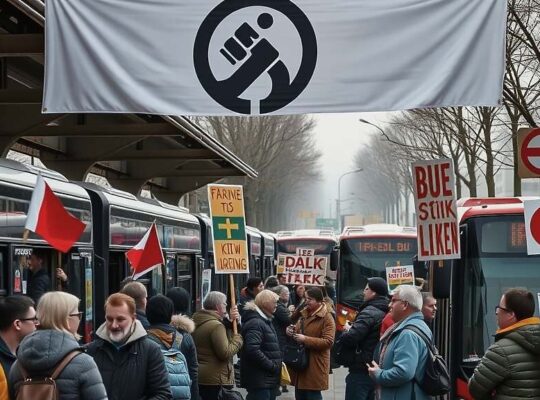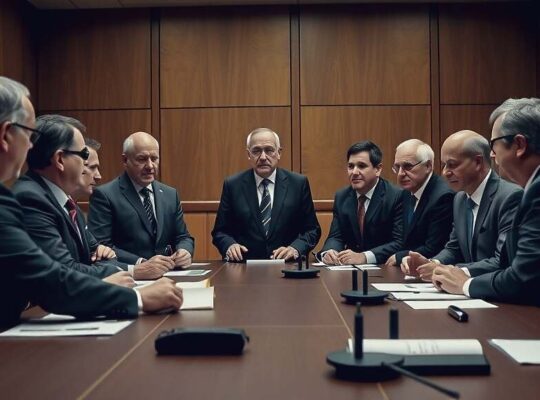The President of the Central Association of German Crafts, Jörg Dittrich, has cautioned against allowing the burgeoning debate surrounding a “firewall” against the Alternative for Germany (AfD) to be dictated by political considerations, asserting it falls outside the purview of business and trade associations. In an interview with “Welt” television, Dittrich warned against the dangers of populism while strongly emphasizing a core set of values crucial to the strength and prosperity of the German economy: integration, diversity, openness and adherence to the Basic Law (Grundgesetz).
Dittrich underscored the principle of equidistance within the business community – maintaining an impartial stance towards all political parties. He clarified that craft associations represent a societal group, not a political faction, acknowledging the presence of supporters from across the political spectrum within the sector. “Our focus must remain centered on the fundamental role of the economy” he stated, stressing the need for a clear commitment to integration, diversity and innovation, rather than tailoring policies to satisfy specific political agendas.
While acknowledging the potential utility of “firewalls” within political structures, Dittrich maintained that their implementation should not be a task for economic representation. Instead, the focus should be on identifying which political stances genuinely support the economy and actively condemning populist rhetoric that actively undermines it.
Adherence to the Basic Law remains a non-negotiable foundation for the German economy, according to Dittrich. However, he explicitly rejected the notion that economic associations should assume the responsibility of assessing whether a political party violates the constitution. “That is the task of society and the security services; it’s not something we, as economic representatives, can or should undertake” he declared, emphasizing the necessity of constitutional safeguards and dedicated governmental bodies to address such issues.
More broadly, Dittrich expressed concern about the global rise of populism, attributing it to a pervasive sense of anxiety and a misguided search for simplistic solutions to complex problems. He cautioned against allowing populists to dominate the discourse, advocating for a renewed commitment to unity and shared values. Germany’s strength, he argued, derives from its history of creativity, diversity, innovation and openness-cornerstones built on the foundation of the Basic Law.
“We in the craft sector stand firmly on those foundational principles” Dittrich affirmed, asserting that any actions which undermine them, challenge European integration, or disregard the importance of diversity and openness, ultimately act against the interests of society, the economy and the craft sector itself. Achieving this consensus, he believes, will alleviate the need for lengthy debates about the “center” of society and how to address people’s anxieties. “I refuse to allow populists to commandeer this crucial discussion”.












